

Vialogues: Video-powered, discussion-driven - Vialogues. Guess what’s being advertised. Free English Lessons. Learn English Live 24/7 □ English Listening Practice - Daily Conversations ✔ ESL Listening Comprehension Exercises: Movie clips to practice English. SECTION 1: Movie Clips Learning through media (movies, music, etc.) is one of the best ways to learn a new language.

The exercises below use movie clips to help you to better understand spoken English. Here's what you do: Click on the video you want to watch below.Watch the video, and pay attention to it! (You can pause and rewind the video.)Answer the listening comprehension questions below the video.Check your answers. ESL Games. Free English Lessons.
Which bag should you use? - Luka Seamus Wright and Imogen. The ironic history of plasticPlastic was first invented by the Belgian New Yorker Leo Hendrick Baekeland in 1907.
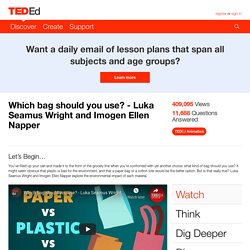
Since then, this group of synthetic polymers has revolutionised human life. As its Greek name plastikós (πλᾰστῐκός) suggests, it is incredibly versatile and can be moulded into any shape or size. Moreover, it is heat resistant and insoluble. These features are captured by Baekeland’s choice of using the infinity symbol and slogan “The Material of a Thousand Uses” to sell his invention, which he called bakelite. A brief history of divorce - Rod Phillips. Why are we so obsessed with memes? Watch these recommended TED-Ed LessonsThe key to media's hidden codes Colors, camera angles and logos in the media can all prompt immediate associations with emotions, activities and memories.
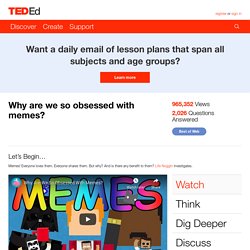
Learn to decode the intricate system of symbols that are a part of everyday life -- from advertising messages to traffic signs.How to choose your news With the advent of the Internet and social media, news is distributed at an incredible rate by an unprecedented number of different media outlets. How do we choose which news to consume? Damon Brown gives the inside scoop on how the opinions and facts (and sometimes non-facts) make their way into the news and how the smart reader can tell them apart.Additional referencesThe power of "like" - Psychology Today Is virtual empathy as good as real-world empathy in making us feel supported and cared for by our friends? Is Google killing your memory? Watch these recommended TED-Ed Lessons How memories form and how we lose themThink back to a really vivid memory.
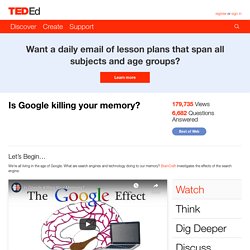
Got it? The environmental cost of free two-day shipping. How can you decrease your carbon footprint?
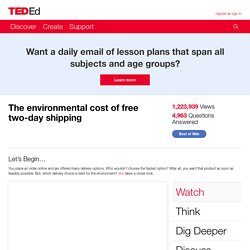
7 instant ways to reduce your carbon footprint will give you some ideas! Retailers can also strive to decrease the carbon footprint with a few easy tips. Read this article to find out more! Vox also has an article entitled: Online shopping is terrible for the environment.It doesn't have to be.Which is really greener-- shopping at a store or shopping online? What happens to your body when you start exercising regularly. Watch these recommended TED-Ed lessons:How playing sports benefits your body… and your brainThe victory of the underdog.
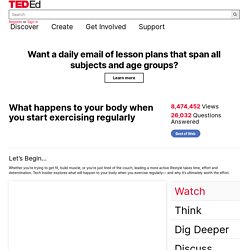
The last minute penalty shot that wins the tournament. The training montage. Many people love to glorify victory on the field, cheer for teams, and play sports. But should we be obsessed with sports? How is your phone changing you? Platforms like Facebook, Snapchat, and Instagram leverage the very same neural circuitry used by slot machines and cocaine to keep us using their products as much as possible.
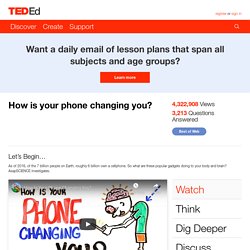
Take a closer look at the underlying science here: Dopamine, smartphones and you: A battle for your time Want to cut down on your screen time? Cool English.